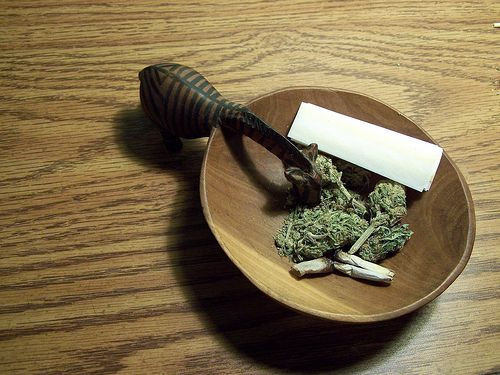Marijuana Kills MRSA and Inhibits Prions That Cause Neurodegenerative Disease; Still Recognized by Feds As a Dangerous Drug

New research reveals that several marijuana ingredients exhibit a potent antibiotic capacity in cases of methicillin-resistant Staphylococcus aureus (MRSA) infections as well as the ability to fight off proteins called prions that can lead to Mad Cow disease and Creutzfeld-Jakob disease (CDJ).
The East Bay Express reports that although the federal government maintains their intransigent stance on the drug, the "schedule 1" compound has showed promising therapeutic potential in several pre-clinical evaluations.
Marijuana and MRSA Infection
The main active ingredient in marijuana, THC, has together with other constituent molecules showed potential to combat and reduce the painful lesions brought on by MRSA infections, according to an entry published on TheAnswerPage.com — an information resource for physicians and researchers promoted by The Massachusetts Medical Society, which also publishes the The New England Journal of Medicine.
"Scientists from Italy and the United Kingdom reported in the August 2007 issue of the Journal of Natural Products that five major cannabinoids that were directly extracted from the cannabis plant — cannabidiol, cannabichromene, cannabigerol, Δ 9-tetrahydrocannabinol, and cannabinol — showed potent antibacterial activity against six different strains of MRSA of clinical relevance," the editors of the website write, noting that these cannabinoids could help control the growing problem of antibiotic resistance in these strains.
In the U.S., MRSA kills about 18,000 of the 94,000 people it affects each year. According to the Center for Disease Control and Prevention (CDC), the infection rate has doubled in last five years. An estimated 25 to 30 percent of the population carries a latent form of the bacteria.
Marijuana and Prions
In addition, weed molecules have been shown to halt prions — a type of protein that causes fatal neurodegenerative diseases like CDJ and Mad Cow disease. In similar pre-clinical studies conducted by American and French researchers, marijuana was shown to inhibit the formation and accumulation of these proteins, increasing the survival time of infected mice by almost a week. The study, titled "Nonpsychoactive cannabidiol prevents prion accumulation and protects neurons against prion toxicity," was published in the Journal of Neuroscience in 2007.
"These findings are encouraging, as prions are very difficult to kill. According to the National Institute of Neurological Disorders and Stroke, presently there is no FDA-approved treatment that can cure or even control CJD," the researchers explain. "These drugs include amantadine, steroids, interferon, acyclovir, antiviral agents, and antibiotics. None of these drugs have successfully cured CJD."



























